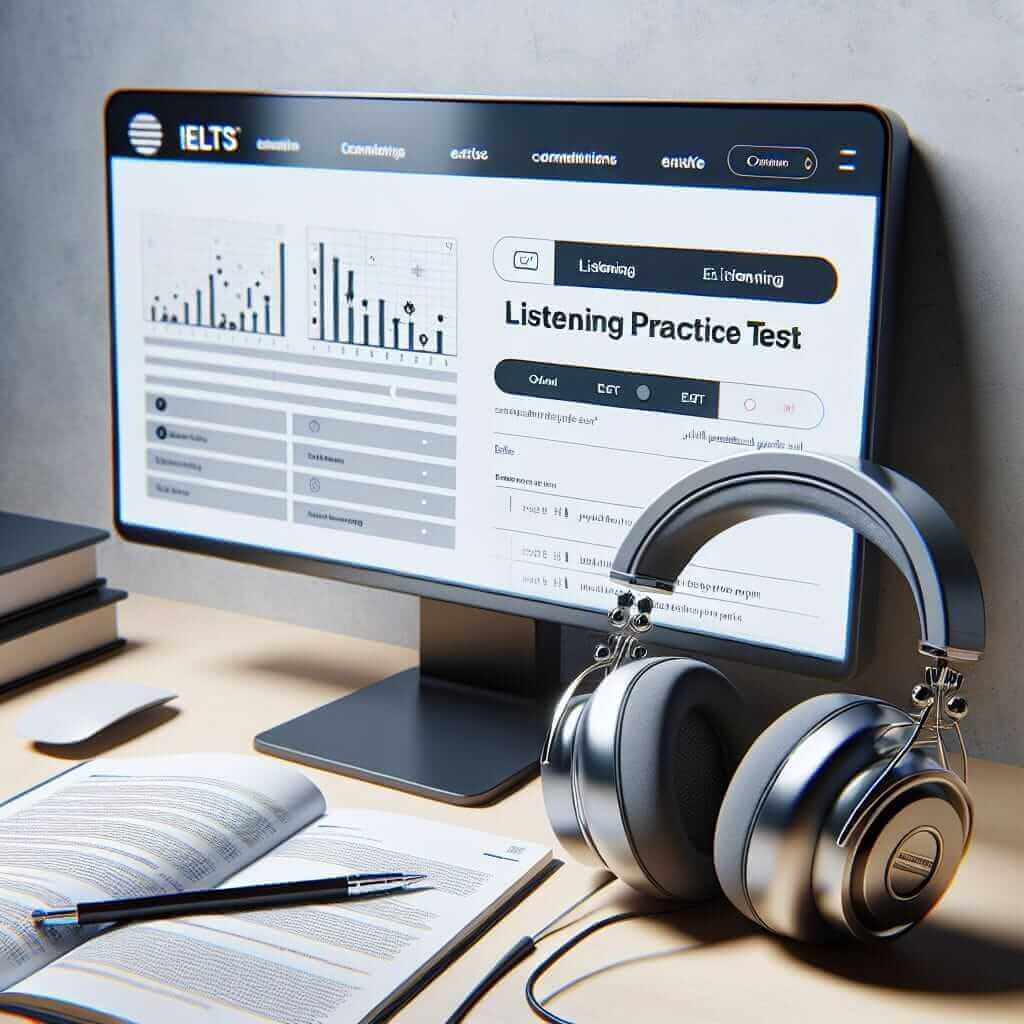As an IELTS instructor with over 20 years of experience, I often encounter students asking about the validity of online IELTS listening practice tests. The concern about “fake” tests is understandable, especially with numerous websites and platforms offering IELTS preparation materials. This article will delve into the world of online IELTS listening practice, addressing the question of authenticity and providing insights to help you prepare effectively.
Understanding the Concern: Why “Fake” Tests Raise Red Flags
The IELTS listening test assesses your ability to understand spoken English in various contexts. A “fake” test, in this context, refers to practice materials that do not accurately reflect the real exam’s format, difficulty level, or content. Using such resources can be detrimental to your preparation, leading to a false sense of confidence or, conversely, unnecessary anxiety.
Separating the Wheat from the Chaff: Identifying Reliable Online IELTS Listening Tests
While concerns about fake tests are valid, it’s important to remember that numerous reputable resources offer valuable practice materials. Here’s what to look for when selecting online IELTS listening tests:
1. Source Credibility:
- Official Sources: The British Council, IDP IELTS, and Cambridge Assessment English are the co-owners of the IELTS test. Their websites offer official practice materials, including listening tests, that accurately mirror the exam’s format and difficulty.
- Reputable Educational Institutions: Many well-established language schools and universities provide free or paid IELTS practice resources.
- Trusted IELTS Preparation Platforms: Several online platforms specialize in IELTS preparation, offering a wide range of practice materials, including listening tests, often with detailed answer explanations and score analysis.
2. Test Format and Content:
- Accurate Format: Ensure the practice test follows the exact format of the actual IELTS listening test, including the number of sections, question types, and timings.
- Authentic Content: The listening passages and questions should resemble the topics, accents, and vocabulary typically encountered in the real exam.
3. User Reviews and Ratings:
- Check for feedback: Look for reviews and ratings from other IELTS test-takers to gauge the quality and effectiveness of the practice materials.

Maximizing Your Preparation: Tips for Effective Listening Practice
- Start with Official Materials: Begin your preparation with practice tests from official sources to establish a baseline and familiarize yourself with the exam format.
- Diversify Your Practice: Explore different reputable online platforms and resources to expose yourself to a wider range of accents, topics, and question types.
- Focus on Active Listening: Pay close attention to the recording, note-taking keywords and phrases, and try to anticipate answers.
- Analyze Your Mistakes: Review your practice test results carefully, identify your weaknesses, and focus on improving those areas.
- Simulate Exam Conditions: Practice under timed conditions in a quiet environment to replicate the exam experience as closely as possible.
Conclusion
While the concern about “fake” online IELTS listening tests is valid, numerous reliable resources are available to aid your preparation. By choosing your practice materials carefully and focusing on effective listening strategies, you can approach the IELTS listening test with confidence. Remember, consistent practice using authentic resources is key to achieving your desired score.